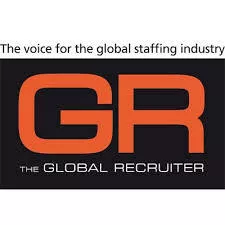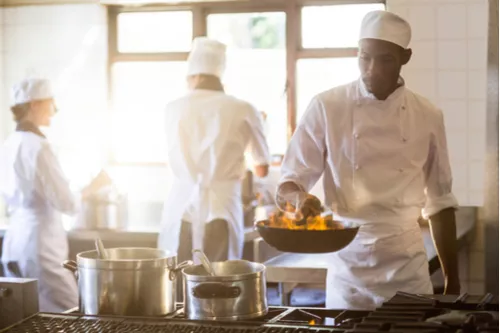
Welcoming Talent
Written by:
Simon Kent, Editor - The Global Recruiter Magazine
Posted on:
March 19, 2018

SECTOR WATCH – Jonathan Lamm, founder and managing director of The Monday Group highlights challenges and opportunities in the hospitality and events industries.
The Global Recruiter recently caught up with Jonathan Lamm, founder and managing director of The Monday Group, a specialist provider of Recruitment and HR Consulting services to the hospitality and events industries. Our far-reaching discussion explored a broad range of topics relating to recruitment and broader HR trends in the sector across Australia.
What became immediately evident in the discussion was Jonathan’s genuine passion, curiosity, interest and knowledge relating to the industries he’s actively involved with. Such depth and insight stem from Jonathan’s extensive history working inside these industries for two decades in both Australia and the United Kingdom including over a decade of devotion to the recruitment of talent within these sectors. Jonathan provides a range of insights and trends he has witnessed over that time.
The emergence of “five-star” service offering beyond luxury hotels
Interestingly, Lamm recalls his early career while completing a hospitality management degree in the late 90s. At the time, he and most of his peers were focused on career paths within luxury five-star hotels. This is because at the time they were the one-stop-shop for all things related to hospitality, events and refined customer service. It is incredible to think how much the industry has changed and evolved since then.
“The industry has inherited an abundance of quality bar and dining establishments as well as free-standing event venues which aren’t under the roof of a five-star hotel,” states Lamm. For example, heavyweight of Sydney’s hospitality scene, Merivale, which in 2008 launched their multi-faceted venue, Ivy, built a dedicated ballroom offering event organisers an upscale CBD venue option which wasn’t located within a five-star hotel.
Today, many luxury hotels continue to struggle to attract local patrons to their food and beverage offerings. Not only has this impacted their revenue models significantly, this has also impacted their ability to attract talent.
“There is little doubt that the mindset and desires of the talent pool within the sector has changed and evolved significantly over the past decade,” says Lamm. “Broadly speaking, available talent in the early stages of their careers are now just as likely to want to work for an on-trend bar or nightclub as they are with a traditional five-star hotel. Those ventures with a distinctly modern edge and an exciting atmosphere are keenly sought after from an employment perspective.”
Some hotels have made attempts to adapt by outsourcing their food and beverage offering to third-party operators or creating partnerships with acclaimed chefs. Not all have succeeded, however, one of the most notable successes is Bentley Restaurant and Bar in Sydney who took over an underperforming site at the Radisson Blu Hotel resulting in a great outcome for all involved.
The MasterChef Effect
Thanks to an abundance of celebrity TV chefs and popular reality TV cooking programs, never has the wider public had such a keen interest in quality food and dining experiences. As a result, they are seeking greater access to quality food and creative cooking but don’t want to be faced with stuffy environments or pretentious service. This goes against the Australian social psyche in 2017. Lamm calls this phenomenon the ‘MasterChef effect’.
Intriguingly, The Monday Group is finding that the MasterChef effect hasn’t necessarily led to more people wanting to pursue a career in hospitality. There appears to be a lack of general desire to start at the bottom and move up through the ranks into management and leadership. The dropout rate of people undertaking chef apprenticeships has increased. For chefs, work-life balance is a challenge and not as an attractive career proposition as depicted by reality TV.
The GFC and rise of the middle market
The global financial crisis (GFC) placed a stake in the ground when it came to the excesses of large corporate Australia. Driven by the weight of costs to produce fine dining with labour constituting a significant portion of operating expenses, after the GFC, corporate social responsibility meant the end of the long boozy lunch due to more stringent cost control measures. Times have certainly changed.
The proliferation of venues and establishments arising in conjunction with the MasterChef effect in the post GFC era has caused what Lamm believes constitutes the largest shift within the sector in our lifetime. “We have seen a dwindling of fine dining in Sydney and Melbourne. Tablecloths are disappearing and instead of there being around twenty fine dining restaurants at that top level, there is now only a handful in existence.” Melbourne’s Attica and Sydney’s Quay restaurants are examples of exceptions at that top level.
Fine dining has now almost entirely replaced with what Lamm refers to as “premium casual dining” – the level at which most hatted restaurants in Sydney and Melbourne now sit, and where the resultant composition of talent to fulfil the workforce are required to meet increasing demands.
We have also witnessed the emergence of a thriving gastropub scene and evolution of café dining. Many venues formerly devoted to drinking now have a strong focus on food and have reinvented spaces once dedicated to poker machines with well-thought-out casual dining concepts. As a result, local pubs and cafés are seeking greater numbers of skilled chefs and experienced restaurant professionals to run these venues.
“There has been a change in what the Australian public want and are willing to pay when it comes to quality food and dining experiences,” says Lamm. “The value proposition is different.”
On trend and Instagram-worthy
Operators within the hospitality sector have experienced increased pressure to change their businesses to become more fashion and trend driven. “For venues to stand out from others, developing stylish food concepts and installing unique design features is key, going to the next level to be attractive,” notes Lamm.
Consequently, the amount that operators are spending on fit-outs has grown exponentially. It’s now more than just putting food and drink in front of people, it has become a lot more all-encompassing. Online perception and being competitive in a highly visual digital world is critical.
The flow-on impact to the events industry should not go unnoticed. “Continued growth in business events has led to increased demand for bespoke solutions and companies which provide specialised event styling services, unique decorations and equipment hire for catered events have flourished.”
Career impact
Attracting talent to industries renowned for long hours with high amounts of pressure for not much pay continues to be a key challenge.
“A career in hospitality or the events industry is not always seen as a long-term or serious career option,” admits Lamm. “It’s often seen as a casual role whilst studying for the pursuit of other professional career endeavours. Employers in this sector should be challenging themselves as to how engaged their current and potential workforce talent can be with the overall brand and vision of the company.”
For Australian restaurant and catering businesses, the challenge to source quality junior chefs is constant. Other trades, such as the electrician, can generate annual salaries of over 80K per year and you can become a contractor with strong career prospects. How does the chef career proposition stack up in comparison?
Similarly, many event managers working with some of the top event agencies are working 12 hour days to meet deadlines. Salary doesn’t usually match the effort or stress involved in delivering high budget event production.
An ever-increasing chef talent shortage is resulting in employers looking globally for emerging talent to give them a competitive and innovative edge says Lamm. Lower to mid-level chefs are being brought in en masse from the United Arab Emirates and the Philippines for example. They can be sponsored on a four year working VISA. Chefs sourced from these locations don’t always aspire to become a head chef and are happy to be working at that line level, with reliable work ethic. This talent grouping seems to comfortably work extensive weekly hours and appreciate the opportunity to work in Australia.
Across the board, hiring high performing sales professionals is a struggle for many organisations. Those companies who can afford to pay above the average continue to be the ones attracting A-grade talent. Compared to many other industries, profit margins in the hospitality and events sector can be very tight and employers are often reluctant to offer the rewarding salaries and commission structures motivated sales professionals are seeking.
The retention challenge is to offer a good culture, with motivation and engagement to reduce turnover. “Employers need to constantly find different ways to stimulate, engage and motivate their teams as a result,” says Lamm.
The Monday Group recognises that a lot of businesses in this sector are small to medium-sized enterprises and require broader HR support to source, develop and retain key talent within their organisations. They need help to operate via best practice HR methods. They need to undertake training programmes to foster employee engagement.
“Multi-venue businesses have numerous organisational workforce layers which result in complex workforce management requirements, often without a dedicated internal HR professional,” says Lamm. “It’s for this reason that we offer an end-to-end Recruitment and HR Consulting service to clients.”
There’s no doubt it’s a fascinating and exciting time to be part of the events, hospitality and leisure industries within Australia and The Monday Group will continue to play a leading role in shaping talent management for the industry’s leading players.


Jul 2024
Overcoming Bias: Hiring Former Business Owners for Senior Roles in Hospitality
In the hospitality industry, there’s a growing need for leaders who can bring fresh perspectives and drive change, but such...

May 2024
Supercharge Your Events Team: How Great Onboarding Boosts Productivity & Retention
In the fast-paced world of events, talent acquisition and retention are top priorities for any successful company. You invest time...

Mar 2024
Women at the Helm: A Fireside Chat with Three Influential Leaders
Get ready to be inspired by the wisdom, and experiences of Lisa Hobbs, CEO of Etymon Projects, Simone Seiler, Global GM of FCM Meetings...


